
Acer palmatum 'Shigitatsu sawa' Klon palmowy plantsgalle… Flickr
Acer palmatum, commonly called Japanese maple, is a deciduous shrub or small tree that typically grows to 10-25' (infrequently to 40') tall. It is native to Japan, Korea and China. General plant form is rounded to broad-rounded, often with low branching. Each palmate green leaf (2-5" long) has 5 or 7 but less frequently 9 pointed toothed lobes.
.jpg)
FileAcer palmatum atropurpureum (Rentilly).jpg Wikimedia Commons
Acer palmatum 'Beni-kawa': Leaves emerge in spring as rich green with slight red edges, then turn deeper green in summer before turning yellow and shedding in fall. Acer palmatum 'Harriet Waldman': Grows to 15 feet tall (same growing conditions as for Bloodgood); new leaves start out pink but eventually turn three colors: pink, white, and green.
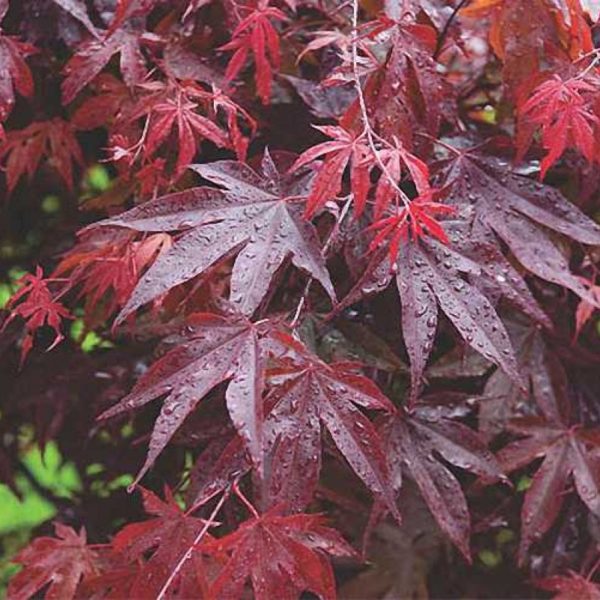
Acer palmatum ‘Atropurpureum’ Pepinieres Girod
Acer palmatum 'Red Dragon': Laceleaf weeping maple; bright red, cherry-colored leaves in the spring that become darker over the summer and turn scarlet in the fall; Acer palmatum 'Bloodgood': Grows to 20 feet tall with a similar spread; has reddish-purple leaves in the summer and is greener in full sun; leaves deepen to crimson red in the fall

Acer palmatum (Japanese maple) Go Botany
Acer palmatum, commonly known as the Japanese maple, is a deciduous shrub or small tree native to Japan, Korea, and China. It usually grows to a height of 10-25 feet, but can occasionally reach up to 40 feet tall. The general plant form is rounded to broad-rounded, often with low branching. Japanese maples are prized for their attractive.

La taille de l'érable du Japon Acer palmatum YouTube
Bouture : Facile à l'étouffée. Le meilleur moment pour les boutures d'Acer palmatum est le mois de juin dans 2/3 de sable et 1/3 de tourbe (possible également au tout début du printemps et à la fin de l'été vers fin Août-début Septembre sur rameau de l'année aoûté). Enduire d'hormone de bouturage pour faciliter la reprise.
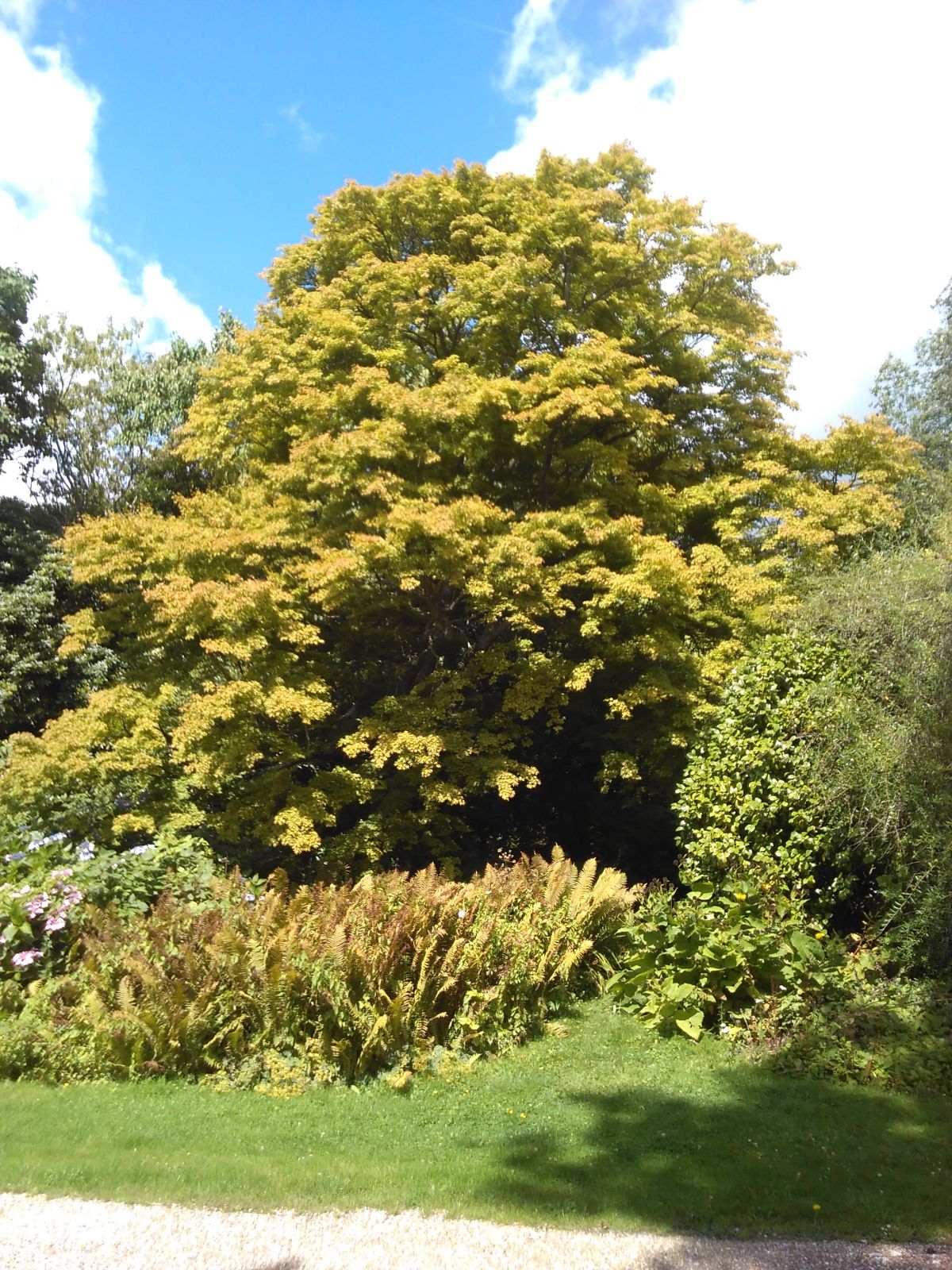
Acer palmatum Trees and Shrubs Online
Parmi les variétés à privilégier : Acer palmatum Arakawa, Acer palmatum Kiyo Hime et Acer palmatum Deshojo. Comment bouturer un érable du Japon ? Après avoir déposé des billes d'argile ou du gravier dans le pot destiné à accueillir votre bouture, préparez votre substrat à base de terreau , de tourbe, de perlite ou de sable.

Acer Palmatum Erable du Japon / Maison Bouture Acer Palmatum, Plant Cuttings, Plants, Home
Acer palmatum, commonly known as Japanese maple, palmate maple, or smooth Japanese maple (Korean: danpungnamu, 단풍나무, Japanese: irohamomiji, イロハモミジ, or momiji, (栴), is a species of woody plant native to Korea, Japan, China, eastern Mongolia, and southeast Russia. Many different cultivars of this maple have been selected and they are grown worldwide for their large variety.

Acer palmatum 'Shigitatsu sawa' Klon palmowy plantsgalle… Flickr
Acer palmatum is a slow-growing deciduous shrub or small tree reaching a height of 10 metres (33 ft), exceptionally up to 15 metres (49 ft). The base of the trunk is often dense with massive, lateral root systems making transplanting difficult. The Leaves are 4 8 cm long and wide, palmately lobed with five, seven, or nine acutely pointed lobes.

Buy Acer Palmatum Atropurpureum Online Gardener's Dream
Genre: Acer Espèce: palmatum Famille: Acéracées Origine: Corée, Japon. L'Érable du Japon est un arbre dit de terre de bruyère, au feuillage caduc et d'une croissance moyennement rapide.Il peut atteindre de 4 à 10 mètres de haut selon les variétés, à raison d'une croissance de 2 mètres en tout sens en cinq ans (généralement). C'est un arbre réputé pour la couleur automnale de.

PDF Epuise acer palmatum `atropurpureum` de bouture e PDF Télécharger Download
this is particularly suitable for heavier, less permeable soils. thoroughly loosen the soil in the planting area to a depth of about 50 cm. place the plant in the middle and fill the hole with the excavation. finally, slightly tramp down the soil in the root area and pour the plant. Acer palmatum japonicum.
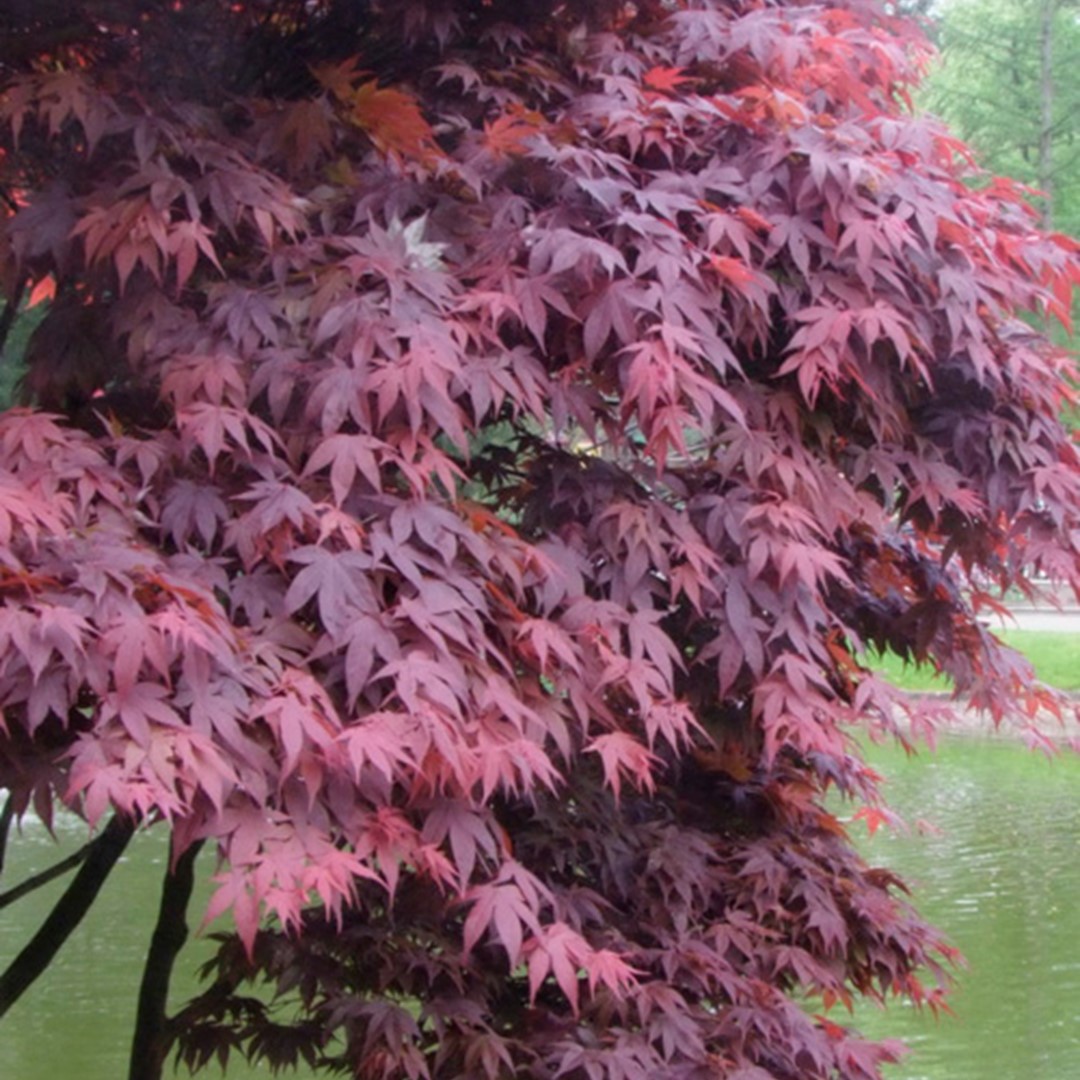
Acer palmatum Atropurpureum
Soutenez la chaine en contribuant sur https://fr.tipeee.com/herve-art-paysage-formation Technique pour réaliser des bonsaï Mame, Shôhin, Chuchin et bouturage.
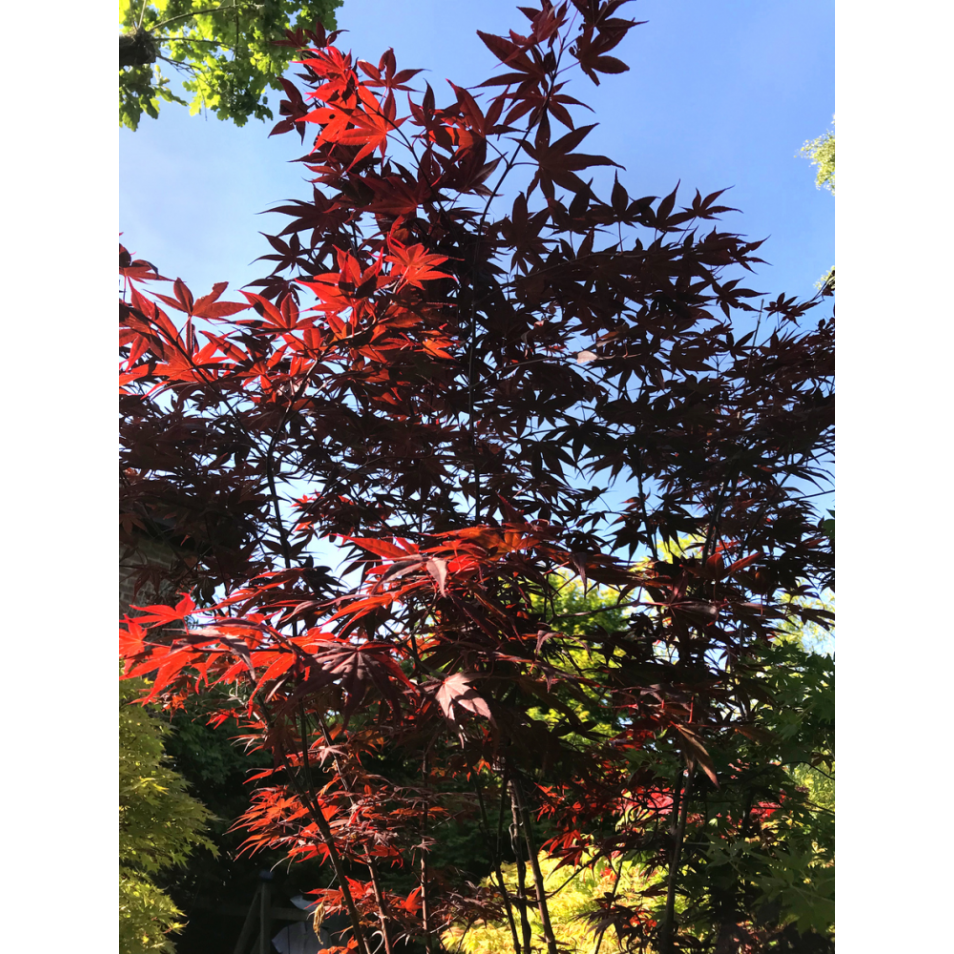
Acer palmatum 'Atropurpureum' 100/+ cm cont. 9.5 litres
Acer palmatum is a small slow growing, deciduous Japanese maple, which can be grown as a shrub or small tree. The delicate foliage of Acer palmatum is small, five-lobed and deep green in the spring. These turn a stunning red in the autumn. It has an overall height of between 6-10 metres.
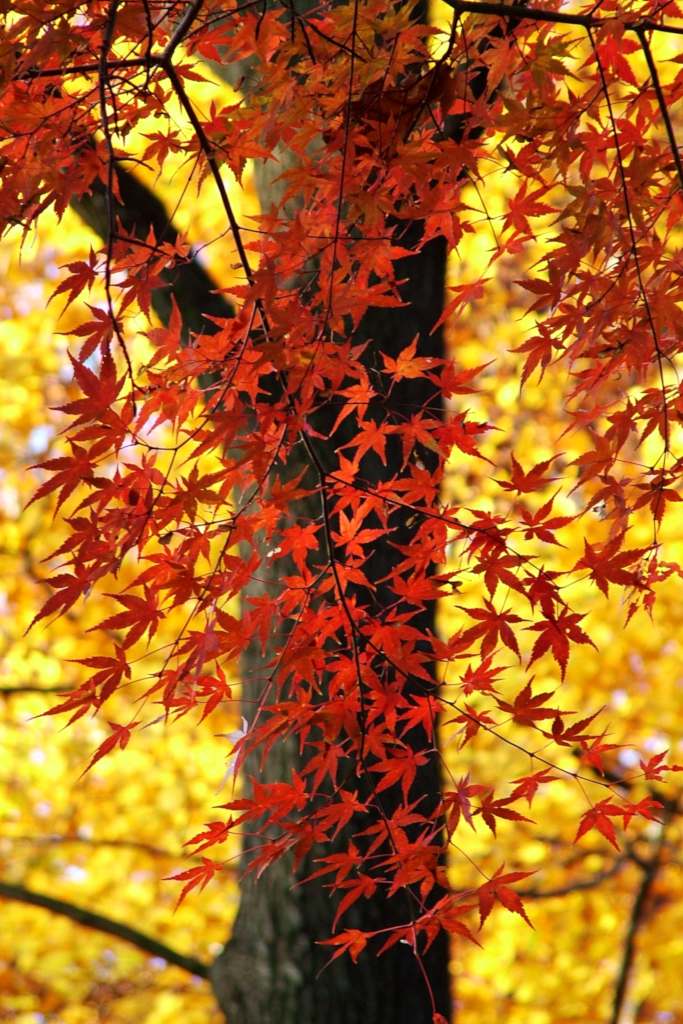
Japanese maple planting, pruning, advice to care for this fabulous fall tree
L'érable du Japon peut se reproduire par semis, par marcottage, par greffage ou par bouturage.C'est de cette dernière méthode de multiplication asexuée qu'il.

Acer Palmatum Seiryu Bonsai Garden, Garden Plants, Beautiful World, Acer Palmatum, Red Maple
Acer is Latin for sharp and palmatum means shaped like a hand, referring to the leaves. Growth is slow to moderate, and the tree assumes a layered look with a low, dense, rounded top and spreading branches. The texture is medium to fine. Plant in dappled shade and evenly moist, well-drained soil, protecting it from drying winds..

Acer Palmatum Feuille Erable du Japon caractéristiques et variétés
Ultimate Species Guide. The Japanese Maple bonsai, also known as Acer palmatum, is a tree species native to Japan, China, Korea, southeast Russia, and eastern Mongolia. This deciduous specimen has a striking leaf structure that many will be familiar with, even those that don't grow them. The foliage presents a characteristic dome that makes.
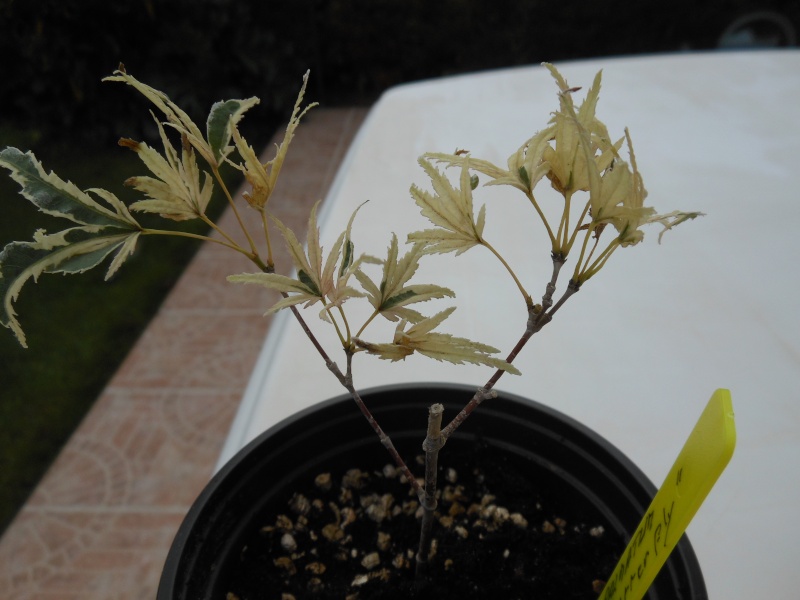
Bouture d'Acer Palmatum
Award-winning Acer palmatum 'Emerald Lace' is a fast-growing, deciduous small tree with a deep emerald green, lacy foliage of great beauty. The small, deeply cut, dissected leaves emerge lime-green in spring, mature to deep emerald green as the season progresses, before turning spectacular bright burgundy-red in the fall. Vigorous, this semi-upright Japanese maple forms a spreading bush.